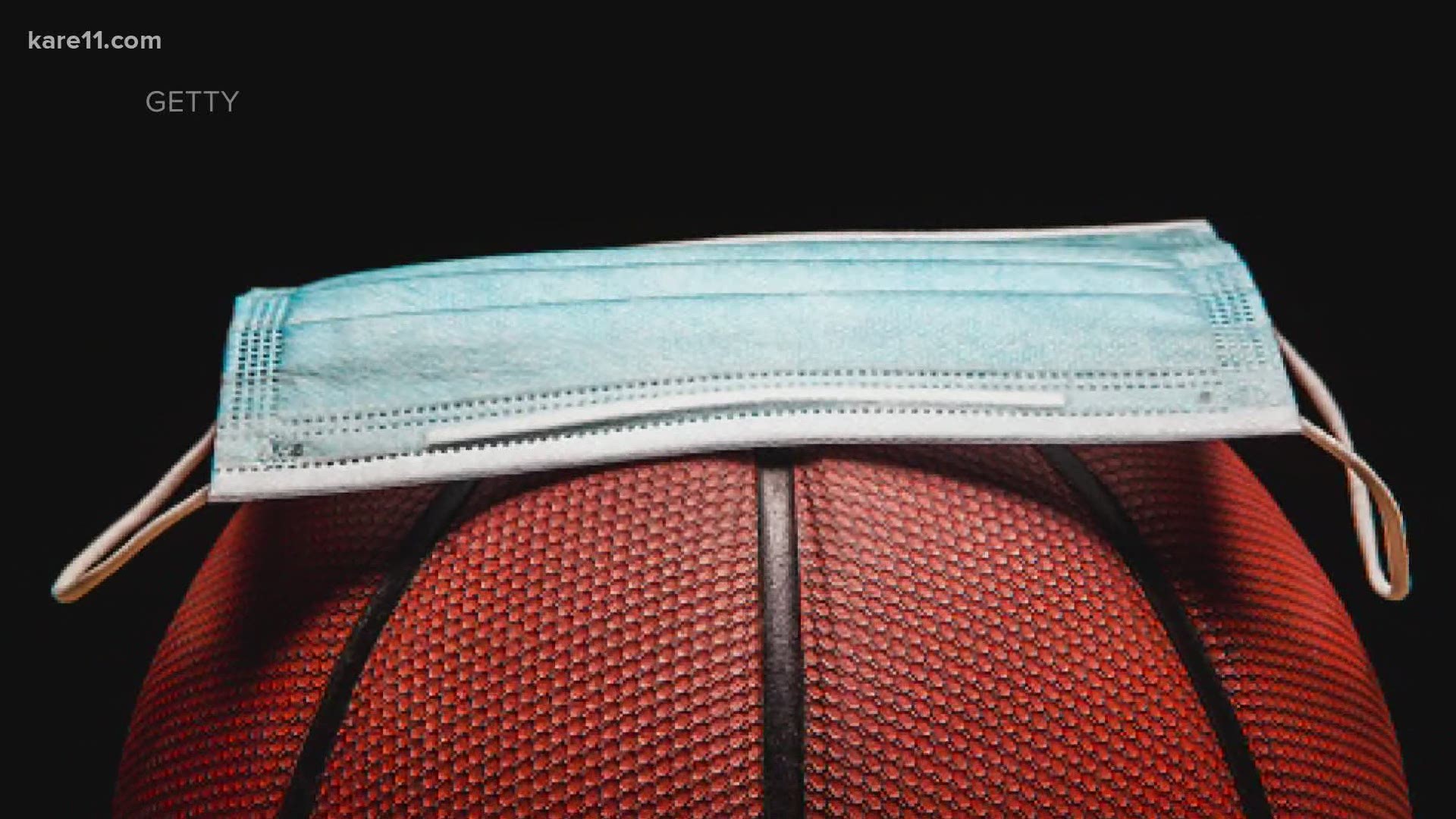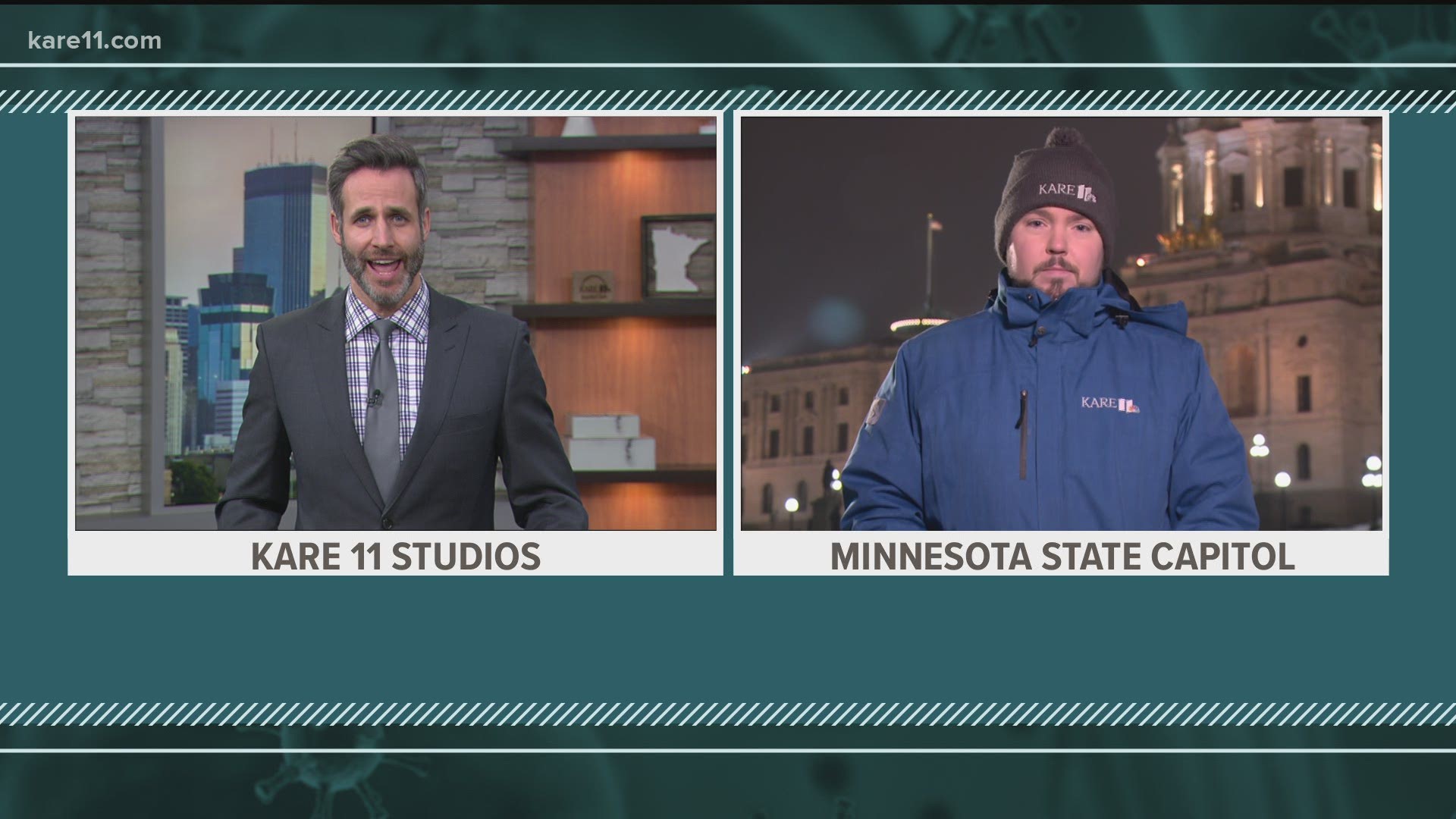MINNEAPOLIS — After COVID cut many youth sport seasons short last year, teams can return to their respective fields Monday, Jan. 4 when high school practices resume.
The first games and scrimmages are allowed to begin 10 days later, on Thursday, Jan. 14.
"I know the kids love being together so ready to get them back together and working together, just get rolling with practice. I'm real excited," said Tara Starks, the new head coach for the Hopkins girls basketball team.
Starks said the team met Sunday to go over some changes like using the sideline more to help spread out.
"Where you are standing at in practice, how close you are, just wiping down equipment between using it between teams and practices and different drills. So just those type of things will be different," Starks said.
The Minnesota Department of Health has published a list of recommendations for high school athletics, including keeping players in small "pods," wearing a mask whenever possible and distancing from team members when waiting on the bench.
Starks said she wishes they would have had a couple extra weeks to adjust to the guidelines before games start.
"You go in and then 10 days later you play. So you don't really have time to adjust. I really push the kids really hard as far as getting up and down the court running and things like that. I worry that they'll struggle to adjust to breathing with these masks on," Starks said.
According to MDH guidelines, there are limited exceptions for some sports, including wrestling (where masks could become a choking or visual hazard), certain gymnastics and cheerleading routines (where face coverings could get caught on objects) and swimming and diving.
"The layman terms I said today was, 'When you're doing your upside downy things where a mask could slip off of your face into your field of vision, you're allowed to take your mask off,'" said Jon Wynia, head gymnastics coach at Champlin Park High School.
Wynia said they practiced Monday morning at Twin City Twisters.
"It felt good to see all the girls in there working hard and have the team back together and we're excited at the potential to have a season," Wynia said.
Each team must implement a COVID-19 plan, spectators will be banned from practices and may be limited at games.
The health department also recommends that coaches focus more on individual drills during the first few weeks of practice in order to limit contact as much as possible before moving to team-based drills.
Players should avoid locker rooms and showers, and “carpooling should be discouraged as much as possible,” according to the guidelines.
Once games resume on Jan. 14, spectators will be limited based on the size of the venue. Concessions and entertainment are not allowed.
"The decision to resume sports does not mean engaging in sports is without risk," the guidance states. "Any time you gather with other people, you are putting yourself and others at risk of exposure to SARS-CoV-2, the virus that causes COVID-19. COVID-19 can lead to serious medical conditions and even death for people of all ages. We cannot predict who will become severely ill, although we know that older people and people with underlying health conditions are at higher risk. We do not yet know what the long-term effects of COVID-19 are; even people with mild cases may experience long-term complications. People with symptoms and without symptoms can spread COVID-19. The masking, distancing, and other guidance provided here is intended to reduce the risk of transmission, but does not eliminate it."
More information about these guidelines can be found on the MDH website.


